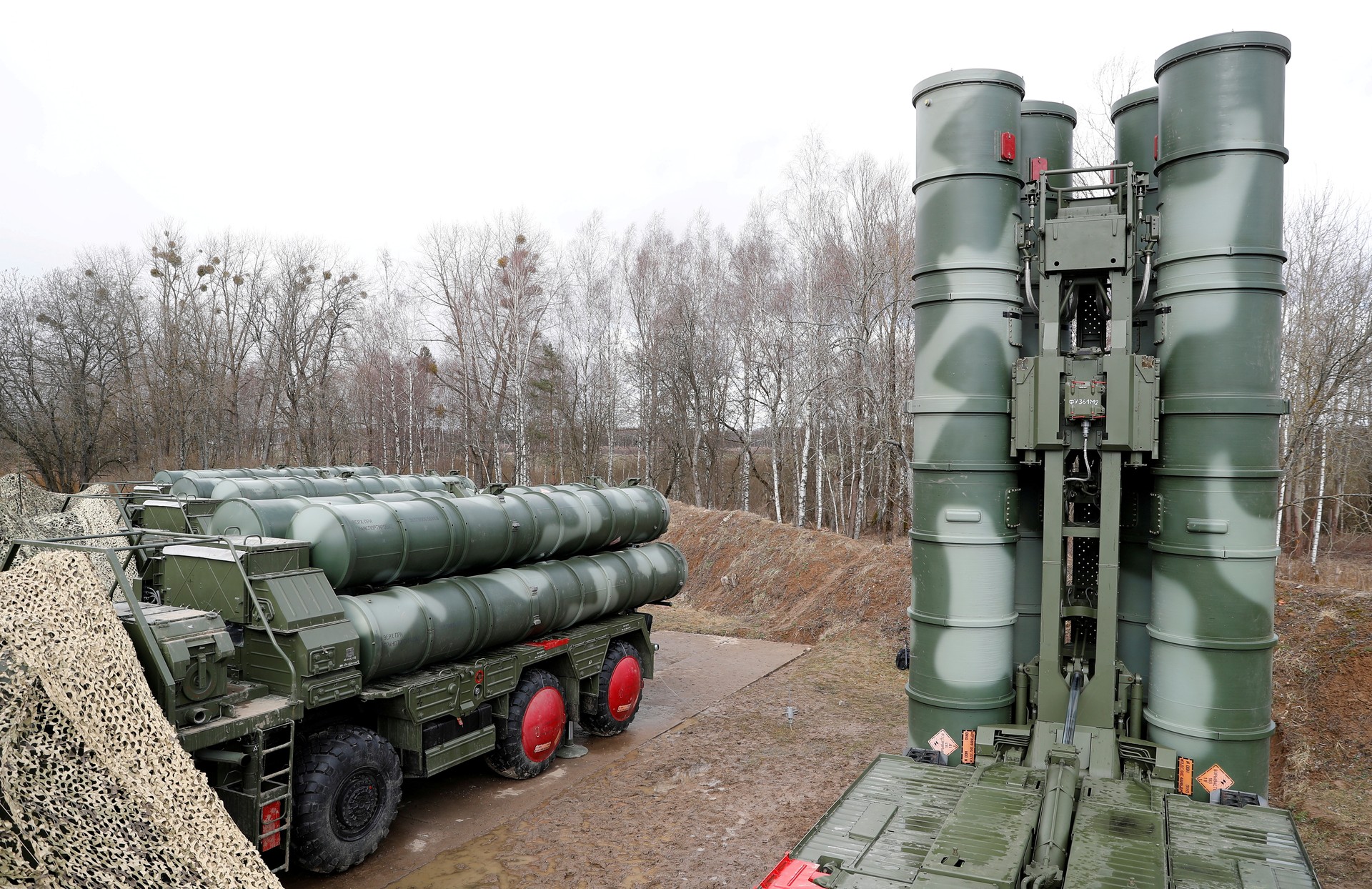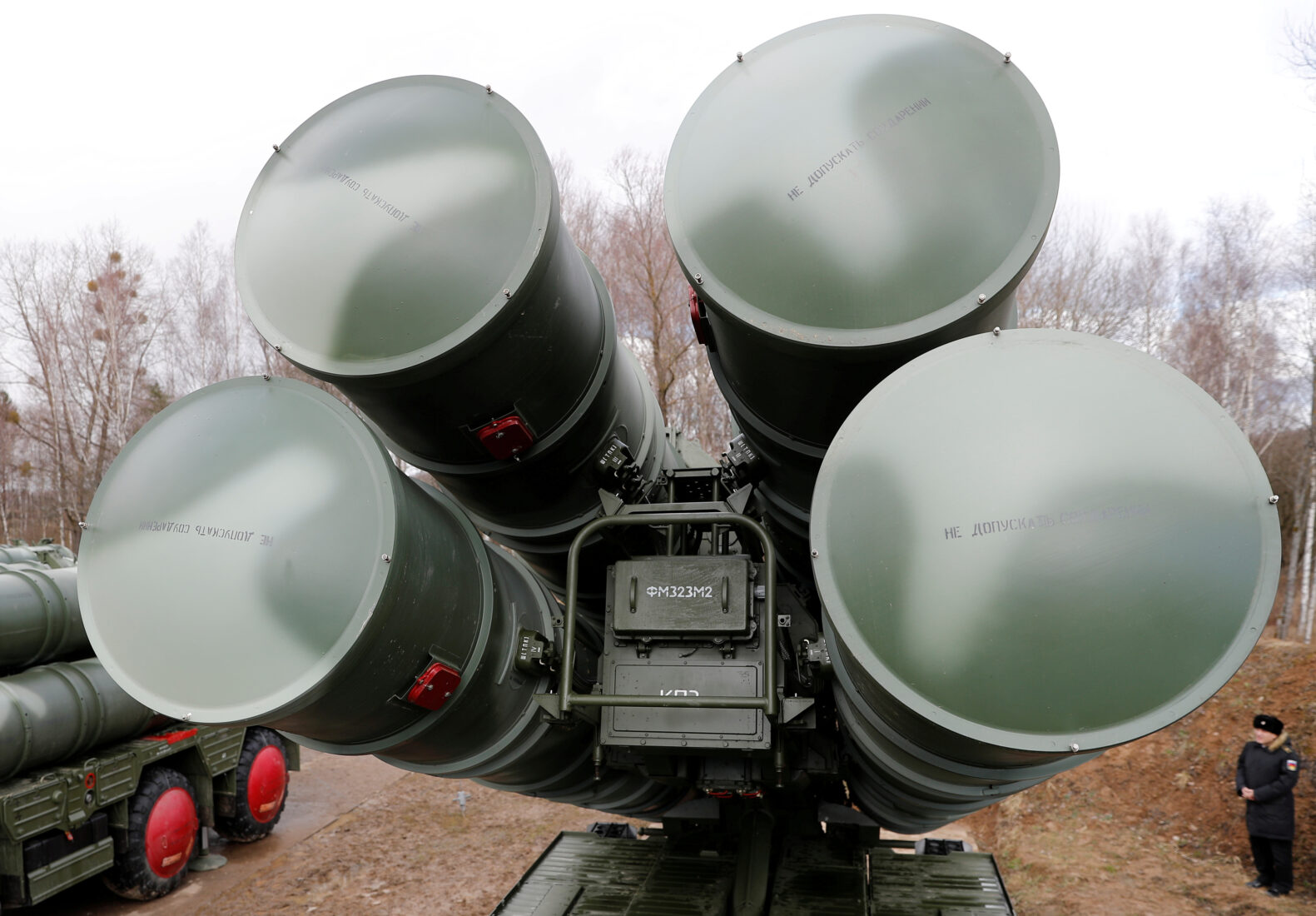
Some U.S. media outlets have proposed that Türkiye could sell its Russian-made S-400 air defense system to other countries as a way to rejoin the F-35 fighter jet program. However, defense expert Turan Oguz highlighted that a system that cannot be replaced should not be discarded.
Forbes magazine, based in the United States, reported that with the deployment of the domestically developed Iron Dome system, Türkiye may no longer need the S-400 air defense system and could sell it to Russia's allies, such as India or Pakistan.
The article proposed that this move could potentially open the door for Türkiye to return to the F-35 program. Former state minister Cavit Caglar had previously raised the idea of selling the S-400s to other countries.

However, experts have noted that Türkiye cannot sell the S-400s without replacing them, as the system is crucial for protecting against ballistic missile attacks.
Commenting on the S-400 debate, Oguz stated that a system that cannot be replaced cannot be easily discarded. Oguz said, “If I were in charge, I would sell the S-400s. If you do that, you could also buy F-16s and F-35s."
He criticized such views, saying, “Anyone making such statements clearly does not keep up with the U.S. Congress and administration.” Oguz argued that the main issue lies in the U.S. expecting Türkiye to meet all its demands and rejecting any alternative solutions.
“The United States wants absolute submission. If we don't comply, they come up with bizarre excuses, like recognizing the 'Syrian genocide,' and their demands often threaten Türkiye's survival,” he said.
Oguz pointed out that there are nearly 30 points of disagreement between the U.S. and Türkiye. He noted that there are legislative proposals in Congress for even trivial matters, which could become laws and lead to new sanctions against Türkiye if any negative developments occur.
Oguz emphasized that contracts for systems like the S-400 include an “end user” clause, and the system cannot be sold to another country without Russia's approval.
"Discussions about selling it began even back in 2017," he added.
Oguz further stated that discussions about selling the S-400s began as early as 2017. Despite this ongoing debate, he insists that Türkiye's declaration of the S-400s as operational is definitive. He emphasized that while NATO commitments prevented integrating the S-400s into the alliance's systems, Türkiye has successfully incorporated them into its own radar network and maintains full operational control.
Oguz argued that given the system's capabilities, particularly in ballistic missile defense, and the absence of a suitable domestic replacement, Türkiye should continue using the S-400s until an alternative is developed.
The S-400 protects Turkish airspace from ballistic missiles within a 400-kilometer range. The SIPER Air Defense system, set to enter service this year, provides protection over a 100-kilometer range and currently lacks ballistic protection.
Even after resolving the S-400 issue, the U.S. could cite other concerns such as Cyprus, Russia, or the Ecumenical Patriarchate as justifications for not providing F-35s. Congress has received numerous proposals, each with its own set of reasons. The real expectation is complete submission, which concerns our survival.